Adventures of the Russian student in the Netherlands.
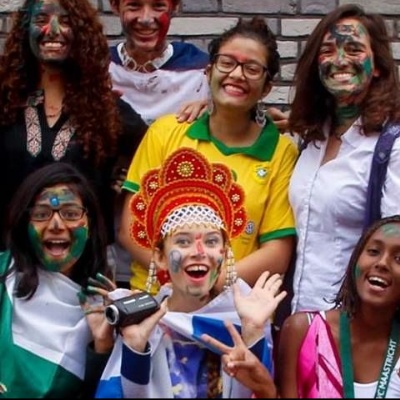
During her first year at UWC Maastricht Polina participated in the organization of the largest UN model THIMUN 2017, took part in the mathematical Olympiad in Vienna, entered the top 30 Beamline for Schools competition and did not forget about Russian folk traditions and culture.
Hello, UWC Russia, dear students, parents and all-all-all!
First of all, I want to thank UWC Russia for the magical opportunity to study in this wonderful place!
My name is Polina Zhilkina, I have finished my first year at UWC Maastricht, which is located in the Netherlands. In my story, I want to sum up my year, tell about my studies, extra curricular activities and the adventures of the Russian student in an international college.
My journey began on September 1, 2016, when, for the first time in my life, I crossed the customs control line alone and went to meet new adventures. The sight of the astonished girl crossing passport control in the Russian kokoshnik attracted a lot of attention, but the integrity of this important attribute of my culture, which I used for dancing at concerts in college, was, of course, above all.
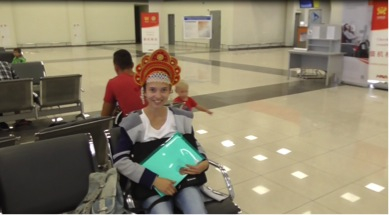
The program that UWC students study is called IB (International Baccalaureate). Under this program, the student must study 3 subjects at the high level and 3 subjects at the standard level. The subjects that I study in college are: Mathematics, Physics, Global Policy at the high level; Geography, English (Language and Literature), French, German (from scratch) at the standard level. Studying in the college began to get me involved from the first minute. Significant differences from the Russian education system, in my subjective opinion, are:
1) Practical approach to the subjects.
From my experience of studying physics in UWCM, the study is aimed to use physics in real life, but not to learn a theoretical model only. For example, we spend a lot of time analyzing the experiment, its possible errors, shortcomings, distortion of data in comparison with theories predicted, even if the experiment is quite simple. In my Russian school we never did this.
2) Learning is not a method of education
First of all, most of the formulas (if not all) are given in special booklets of this kind for 10 sheets, which can be used not only on tests, but also on the final exam. Secondly, unlike the Russian system of education, where I usually saw similar tasks on the independent work that were dismantled in the classroom, in IB you can see assignments that have never been analyzed before, but based on the course material. Therefore, at least for me, understanding became the basis of learning in IB.
3) Self-education
It is the keystone, and this is a huge difference from the Russian educational system. If the student is aiming for a high result, he has to do a lot himself. An example of my experience will be Global Politics. In the lessons, we analyze only the basic concepts and a few examples, but for successful writing an essay in the final exam I needed to disassemble more than a dozen examples. In every subject, more or less, self-education and self-development are the key to successful studies.
Studies, deadlines, relief after tests, the amicable completion of homework in German at one o'clock in the morning with a roommate - this is only part of the adventure, which is called UWC. Independent life away from the family with the guys of my age who also do not know what is awaiting us! My adventure consists of small moments, which I will remember for a very, very long time. A stack of broken plates in the dining room and a desire to fall through the ground when everyone clapped on this occasion ... The wheel of a bicycle that exploded in an enchanting attempt at pumping it with an electric pump ... Another promise is "tomorrow to go to bed at 10, "I can not", going to bed at two o'clock in the morning after another, as always unplanned, roomie night ... Preparations for the first ball .. The first awkward attempts to call teachers (!) by NAME ... Traditional showering, arranged by friends on the occasion of my birthday ...
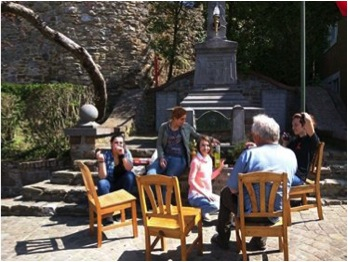
I made wine in Belgium, which is only 20 minutes away from our college. During the year we collected grapes, cut off its branches, courted new shoots, and, finally, at the end of the year we bottled wine, pasted labels, learned to close the bottle correctly. It was fun and interesting! I learned how to work with many tools, enjoyed the nature around and the community of friends and a wonderful leader!
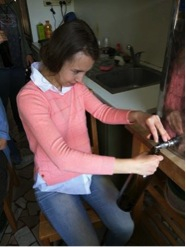
If we talk about the most memorable events for my first year in UWCM, then we get a whole iridescent kaleidoscope, from which I can distinguish the following:
1. The Russian folk tale for students of primary and senior schools.
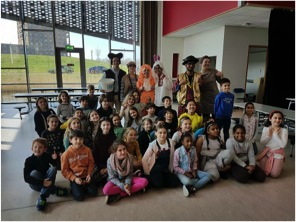
"The Fox and the Hare" - Fox had a lovingly hut, and Hare has an icy ... Old good Russian fairy tale, only the characters speak English. I put this fairy tale together with the guys with whom I am studying to introduce Russian culture outside of my country and to enable students to try themselves on stage! Thank You for good job Aya, Orlando, Ellina, Alwaqas, Dasha, Vivi and Ifunanya!
2. Participation in the largest UN Model THIMUN 2017
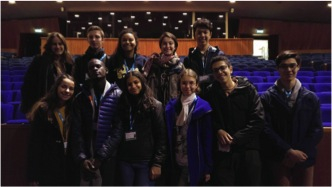
More than 10 students of our college took part in the UN Model THIMUN 2017, the number of participants exceeded 4000! We discussed the global problems of our time, trying to find solutions through constructive debate and diplomatic negotiations.
3) Day of Peace.
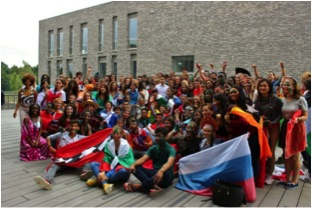
The celebration of the Day of Peace in the college was remembered by the friendly atmosphere, the ideas of my peers and the colorful combination of different traditional costumes around me!
4) Participation in the Mathematical Olympiad in Vienna 2017
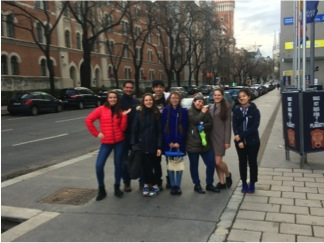
Among the 7 students of the college, I was honored to represent the school in an international mathematics competition in Vienna!
The trip was remembered by hard work in the team, a wonderful walk through the enchanting but very windy Vienna, and an excellent mood during the whole trip!
5) The entry into the top 30 sheet of the Beamline for Schools competition, held by EONR (European Organization for Nuclear Research).
I was fortunate enough to enter the team of students interested in science who applied for this competition. We had to plan an experiment that could be carried out in the EONR laboratory, and we proposed a solution to the problem of irradiating astronauts in space using the theory of channeling protons in a silicon crystal. Our application was interesting, and we were able to write it completely independently! We managed to be among the top 30 teams out of all 180, and we won a real particle detector for our school!
The video attached to our application can be viewed here:
Polina, UWC Maastricht'2018.
